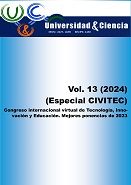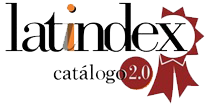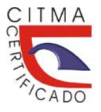The Effect of social networks on the development of cognitive skills: exploratory factor analysis
DOI:
https://doi.org/10.5281/zenodo.11583299Keywords:
cognitive skills, creativity, critical thinking, problem solving, social mediaAbstract
The objective of this research is to evaluate, through an Exploratory Factor Analysis, the effect of social networks on the development of cognitive skills in university students. The results are obtained through a descriptive quantitative study, with the study subjects being young university students from the Autonomous University of Baja California (UABC), specifically from the Faculty of Accounting and Administration. A sample of 354 students is established, based on a confidence level (z) of 95 percent and a margin of error () of 5 %, in addition to a probability of success (p) and failure (q) equal to 0.5. As main implications, the presence of social networks is identified as a phenomenon present in the current context. From the methodological point of view, through an exploratory factor analysis, an exploratory model that integrates two factors under study is validated; social networks made up of variables such as Twitter, Linkedin and YouTube; as well as cognitive skills integrated by critical thinking, creativity and problem solving. Such integration of variables explains more than fifty percent of the phenomenon of social networks and cognitive abilities that the factorial relationship is established by virtue of the KMO test. According to the results and discussion thereof, future lines of research are generated to provide findings on the impact of the use of social networks on the development of interpersonal skills in university students.
Downloads
References
Abidin, C. (2018). Internet Celebrity: Understanding Fame Online. Emerald Publishing Limited.
Aguilera Hermida, A. P. (2020). College students’ use and acceptance of emergency online learning due to COVID-19. International Journal of Educational Research Open, 1, 100011. https://doi.org/10.1016/j.ijedro.2020.100011
Baron, N. S. (2020). Distracted: The erosion of attention and the coming dark age. Beacon Press.
Benavides, C., y Ruíz, A. (2022). El pensamiento crítico en el ámbito educativo: Una revisión sistemática. Revista Innova Educación, 4(2), Article 2. https://doi.org/10.35622/j.rie.2022.02.004
Bezanilla Albisua, M. J., Poblete Ruiz, M., Fernández Nogueira, D., Arranz Turnes, S. y Campo Carrasco, L. (2018). Critical Thinking from the Perspective of University Teachers. Estudios pedagógicos (Valdivia), 44(1), 89-113. https://doi.org/10.4067/S0718-07052018000100089
Castaño Ramírez, Ó. M., Esteban Duarte, N., Jaimes Montaña, I. C., y Peña Quimbaya, É. (2023). Análisis factorial exploratorio de la Escala de Miedos al Coronavirus. Revista de Psicopatología y Psicología Clínica, 28(2), 121-127. https://doi.org/10.5944/rppc.34573
Coordinación General de Servicios Estudiantiles y Gestión Escolar (2022). Matrícula Facultad de Contaduría y Administración: Universidad Autónoma de Baja California, México.
Cortés Cortés, M, Mur Villar, N, Iglesias León, M, y Cortés Iglesias, M. (2020). Algunas consideraciones para el cálculo del tamaño muestral en investigaciones de las Ciencias Médicas. Medisur, 18(5). http://medisur.sld.cu/index.php/medisur/article/view/4558
Dabbagh, N., y Kitsantas, A. (2019). Personal Learning Environments, social media, and self-regulated learning: A natural formula for connecting formal and informal learning. Internet and Higher Education, 42, 35-44.
Elisondo, R. C. (2018). Creatividad y Sociedad: Llegar con una nueva idea. 27. http://creatividadysociedad.com/articulos/27/6.Creatividadyeducacion_llegar conunabuenaidea.pdf
Fardouly, J., Diedrichs, P. C., Vartanian, L. R. y Halliwell, E. (2020). Social comparisons on social media: The impact of Facebook on young women's body image concerns and mood. Body Image, 33, 88-95.
Ferrara, E. (2019). Disinformation and social bot operations in the run up to the 2017 French presidential election. Information Forensics and Security, IEEE Transactions on, 14(10), 2446-2458.
Giraldo Giraldo, Y., Moreno Montoya, J.F.., Madrigal Zuluaga, N., Alzate Echavarría, M., Torres Zapata, C., Hincapié Aguirre, N., Pérez Palacio, AC, Salgado Pérez, AG, Y Morales Betancur, J. D. (2021). Relación entre el uso de redes sociales y las funciones ejecutivas. Poiésis (40), 57-72. DOI: https://doi.org/10.21501/16920945.4054
Glăveanu, V. P. (2018). Educating which creativity? Thinking Skills and Creativity, 27, 25-32. https://doi.org/10.1016/j.tsc.2017.11.006
Guzmán, M. F., Águila, Y. H., y Olivera, I. A. (2017). Las habilidades cognitivas en el profesional de la Información desde la perspectiva de proyectos y asociaciones internacionales. Investigación Bibliotecológica: archivonomía, bibliotecología e información, 31(71), Article 71. https://doi.org/10.22201/iibi.0187358xp.2017.71.57816
Hew, K. F., y Cheung, W. S. (2019). Students’ and instructors’ use of massive open online courses (MOOCs): Motivations and challenges. Educational Research Review, 12, 45-58.
Hsiao, C. C., Yang, A.-M., Wang, C., y Lin, C.-Y. (2023). Association between glyphosate exposure and cognitive function, depression, and neurological diseases in a representative sample of US adults: NHANES 2013–2014 analysis. Environmental Research, 237(Part 1)
IAB México. (2020). Estudio de Consumo de Medios y Dispositivos entre Internautas Mexicanos. Televisa Digital. https://www.amai.org/covid19/descargas/consumoMediosDispositivos.pdf
Jerhmie James, A. Z. (2017). Software Quality: Assessment on the Organizational, Technological and User-related Determinants in the Philippine Setting. International Journal of Computing Sciences Research, 1(2), 46-65. doi:10.25147/ijcsr.2017.001.1.12
Klimenko, O., Cataño Restrepo, Y. A., Otálvaro, I., y Úsuga Echeverri, S. J. (2021). Riesgo de adicción a redes sociales e Internet y su relación con habilidades para la vida y socioemocionales en una muestra de estudiantes de bachillerato del municipio de Envigado. Psicogente, 24(46), 1-33. https://doi.org/10.17081/psico.24.46.4382
Klimenko, O., Cataño Restrepo, Y. A., Otálvaro, I., y Úsuga Echeverri, S. J. (2021). Riesgo de adicción a redes sociales e Internet y su relación con habilidades para la vida y socioemocionales en una muestra de estudiantes de bachillerato del municipio de Envigado. Psicogente, 24(46), 1-33. https://doi.org/10.17081/psico.24.46.4382
Matanda, Ephraim. (2022). Research Methods and Statistics for Cross-Cutting Research: Handbook for Multidisciplinary Research. Langaa RPCIG.
Mayer, R. E. (1986). Pensamiento, resolución de problemas y cognición. Ediciones Paidós.
Moral Espín, L. del (2020). El uso de las redes sociales en la educación superior en México: un análisis de estudiantes de Comunicación. Estudios Sobre las Culturas Contemporáneas, 26(54), 87-109.
Otzen, T., y Manterola, C. (2017). Sampling Techniques on a Population Study. Int. J. Morphol, 35(1), 227-232.
Olechnowicz, A., y Babula, E. (2021). Behavioural Factors of Willingness to Save Long Term - a Factor Analysis. Research Papers of the Wroclaw University of Economics / Prace Naukowe Uniwersytetu Ekonomicznego We Wroclawiu, 65(2), 102-113. doi:doi:10.15611/pn.2021.2.07
Patil, S. (2020). Research Methodology in Social Sciences. NIPA.
Pennycook, G., y Rand, D. G. (2019). Fighting misinformation on social media using crowdsourced judgments of news source quality. Proceedings of the National Academy of Sciences of the United States of America, 116(7), 2521–2526. https://doi.org/10.1073/pnas.1806781116
Pereira Da Silva, M. I., Araújo, B. R., y Costa Amado, J. M. (2022). Adaptation and Validation of the Tuberculosis Related Stigma Scale in Portuguese. Aquichan, 22(2), 1-17. https://doi.org/10.5294/aqui.2022.22.2.6
Primack, B. A., Shensa, A., Sidani, J. E., Whaite, E. O., Lin, L. Y., Rosen, D., Colditz, J. B., Radovic, A., y Miller, E. (2017). Social Media Use and Perceived Social Isolation Among Young Adults in the U.S. American journal of preventive medicine, 53(1), 1–8. https://doi.org/10.1016/j.amepre.2017.01.010
Rogers, P. (2022). Best Practices for Your Exploratory Factor Analysis: A Factor Tutorial. RAC: Revista de Administração Contemporânea, 26(6), 1-17. https://doi.org/10.1590/1982-7849rac2022210085.en
Sánchez, Y. (2007). La solución de problemas como un campo de concurrencia de distintas teorías en Psicología. Revista Colombiana de Psicología, 16: 147-162.
Sevillano, L. M. C. (2020). Habilidades del pensamiento crítico en estudiantes universitarios a través de la investigación. Desde el Sur, 12(1), Article 1. https://doi.org/10.21142/DES-1201-2020-0009
Social network users in leading markets 2024. (n.d.). Statista. Retrieved March 26, 2024, from https://www.statista.com/statistics/278341/number-of-social-network-users-in-selected-countries/
Suo Yanju, Yusuf, M., Suo Yanmei, y Abdullah, H. (2023). An Exploratory Factor Analysis Examining Mandarin as a Foreign Language (Mfl) Learners’ Self-Efficacy at Malaysian Public Universities. Journal of Nusantara Studies, 8(2), 427-442. https://doi.org/10.24200/jonus.vol8iss2pp427-442
Twenge, J. M., y Campbell, W. K. (2018). Associations between screen time and sleep duration are primarily driven by portable electronic devices: evidence from a population-based study of US children. Journal of sleep research, 27(2), 229-235.
Vosoughi, S., Roy, D. y Aral, S., (2018). The spread of true and false news online. Science, 359(6380), 1146-1151.
Downloads
Published
How to Cite
Issue
Section
License
Copyright (c) 2024 Universidad & ciencia

This work is licensed under a Creative Commons Attribution-NonCommercial-ShareAlike 4.0 International License.





















